MercoPress. South Atlantic News Agency
Tag: Brazilean Central Bank
-
Thursday, September 22nd 2011 - 21:52 UTC
Brazil to the rescue of the Real which is down 17% against the dollar in 4 weeks
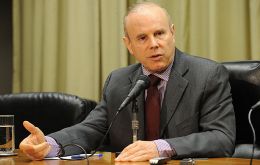
Brazil's central bank unexpectedly acted to halt the currency's slide on Thursday, highlighting growing concern among officials that the global financial crisis is damaging Brazil's economy and could cause a potentially destructive spurt in inflation.
-
Thursday, September 1st 2011 - 02:45 UTC
Brazil unexpectedly cuts interest rate to 12% on risks of EU and US recession
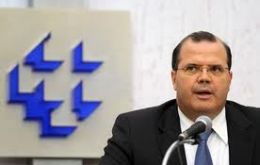
Brazil’s central bank on Wednesday unexpectedly cut interest rates as the risk of recession in Europe and the US shifted policy makers’ focus away from containing the fastest inflation in six years.
-
Saturday, August 27th 2011 - 07:17 UTC
Brazil en route to comply comfortably with budget planned primary surplus
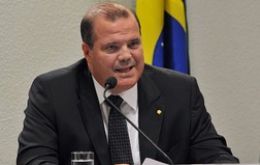
Brazil’s budget primary surplus widened in July to a record for the month pushing the year-to-date total to almost 80% of the government’s 2011 target, according to the Central bank.
-
Wednesday, August 24th 2011 - 07:00 UTC
Record DFI in Brazil narrows significantly current account deficit
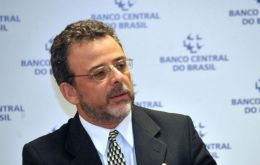
Brazil's 12-month current account deficit narrowed in July on rising revenue from exports and strong foreign direct investment. The 12-month deficit declined to 47.9 billion dollars or 2.1%, of GDP, from 49 billion, or 2.2% of GDP in June, the central bank said Tuesday.
-
Thursday, August 18th 2011 - 06:41 UTC
Brazil economic activity fell in June for the first time since 2008

Brazil's economic activity fell in June for the first time since 2008. The central bank's IBC-Br economic activity index fell 0.26% in June from May the first sequential drop since December 2008, when the global financial crisis plunged major economies into recession.
-
Monday, August 8th 2011 - 04:33 UTC
Brazil remains faithful to the dollar and has no plans to sell US Treasuries
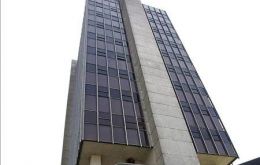
Brazil has no plans to sell US Treasuries or change its foreign currency reserves holdings as a result of Standard & Poor’s downgrade of the US’s credit rating, a government official said.
-
Thursday, August 4th 2011 - 06:36 UTC
July marked the second largest net inflow, in record, of dollars into Brazil: 15.8bn
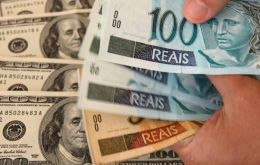
Brazil registered its second-largest volume of net monthly foreign-exchange inflows on record in July. Net dollar inflows in the month reached 15.83 billion, compared with 2.56 billion in net outflows in June and only 713 million in net inflows in July last year.
-
Friday, July 22nd 2011 - 06:20 UTC
Brazil: record low unemployment and more job-creation in second half anticipated
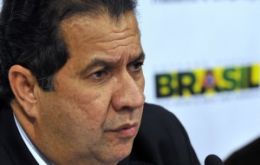
Brazil’s unemployment rate fell to its lowest since January in spite of efforts by policy makers to cool growth and inflation in Latin America’s biggest economy. The jobless rate fell to 6.2% in June, from 6.4% in May and 7% a year earlier, the national statistics agency said in a report distributed in Rio de Janeiro.
-
Thursday, July 21st 2011 - 10:09 UTC
Brazil raises the basic rate to 12.50%, but confident it can tame inflation

Brazil’s central bank announced late Wednesday the fifth straight increase in its benchmark Selic rate by a quarter points to 12.5%, a decision much anticipated by the market and geared to combat high inflation, which is running at a six-year high, 6.75% above the government’s upper target of 6.5%.
-
Tuesday, July 19th 2011 - 01:15 UTC
Brazil tightens consumer credit backed by wages and pensions

Brazil's central bank on Monday tightened rules on credit card loans backed by wages and pensions which households are increasingly using as a source of long-term borrowing.
